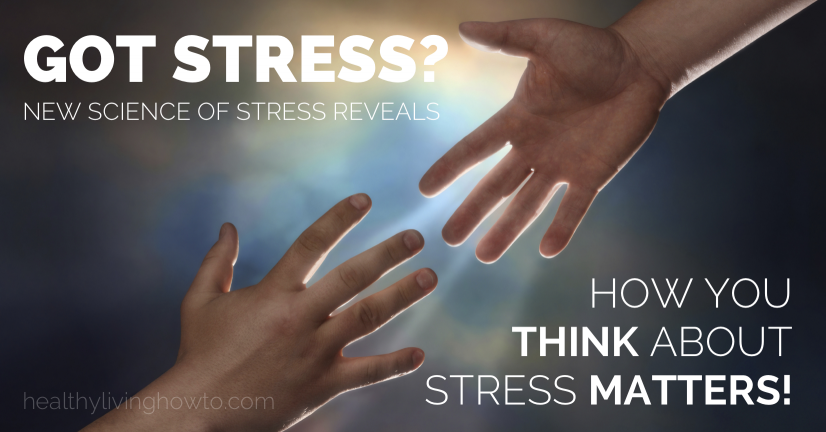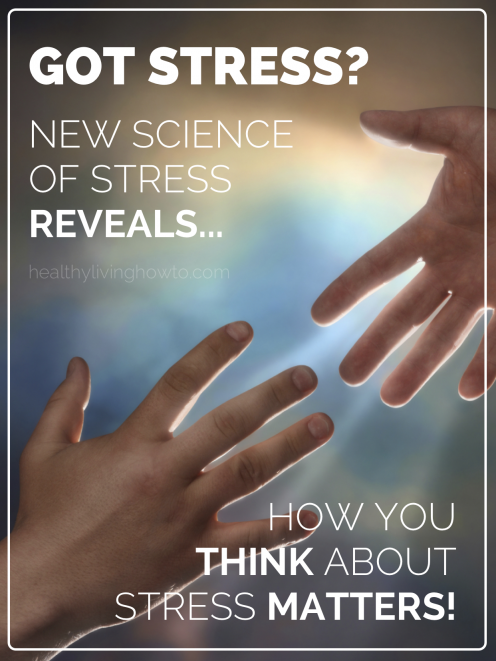“The harmful effects of stress on your health on are not inevitable. How you think and how you act can transform your experience of stress. When you choose to view your stress response as helpful you create the biology of courage. And when you choose to connect with others under stress you can create resilience.” Kelly McGonigal, PhD, and Health Psychologist
How You Think About Stress Matters
We've all heard that stress is bad for our health. The statistics comparing stress and related health complications is staggering. But what if, just what if each and everyone of us could make stress work for us and not against us. The new science of stress reveals how you think about stress matters when it comes to your health. Kelly McGonigal, PhD and Health Psychologist reveals in her popular TEDx video below, how to make stress your friend. Take the time to watch, it might just change your life and your health!
How You Think About Stress Matters Video Notes
Do you believe stress is harmful for your health?
- Stress statistic – 43% increased risk of dying — only true for those who believe stress is harmful for your health
- People who don't view stress as harmful were no more likely to die
- Believing stress is harmful is the 15th largest cause of death
Can changing how you think about stress make you healthier — science says yes
- When you change your mind about stress you can change how your body responds to stress
- Study at Harvard before they went through the stress test they were taught to rethink their stress response as helpful
- Participates who viewed the stress as helpful were more confident and their physical stress response changed
- When people view response as helpful, blood vessels stayed relaxed like what happens in moments of joy and courage
- New science of stress reveals how you think about stress matters
The underappreciated aspects of the stress response – stress makes you social
- Stress releases the hormone oxytocin, the cuddle hormone, same hormone that is released when you hug someone
- Oxytocin is a neuro-hormone it fine tunes the brain's social instincts – it primes you to do things that strengthen close relationships
- You crave contact with friends and family — it increase empathy, compassion and caring
Most people don't understand oxytocin is a stress horomone — it is as much a part of the stress response as adrenaline
- When released it motivates you to seek support, tell someone how you feel not bottle it up,
- Your stress response wants you to notice when someone else in your life is struggling
- Oxytocin acts not just on your brain but on your body — it protects the cardiovascular system from stress
- The heart has receptors for oxytocin and helps heart cells regenerate — this stress hormone strengthens your heart
- The benefits are enhanced by social contact and support, reaching out to others or helping someone else and your stress response becomes healthier
We have a built in mechanism for stress resilience — human connection
- How much time have you spent helping neighbors, friends, people in your community
- For every major stressful life experience the risk of dying increases by 30%
- This isn't true for everyone, the people who spend time caring for others show no increase in dying
- Caring creates stress resilience
The harmful effects of stress on your health on are not inevitable
- How you think and how you act can transform your experience of stress
- When you choose to view your stress response as helpful you create the biology of courage
- And when you choose to connect with others under stress you can create resilience
Chasing meaning is better for your health than trying to avoid discomfort. Go after what it is that creates meaning in your life.

